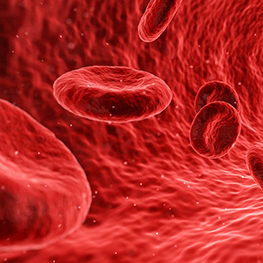Brain Blast | A Scientific Look at Life
The latest news on the brain and beyond.
What defines our lives? It is the job we do, the emotions we feel, the sensations we experience, or the way our body functions?
In the recent articles we have compiled below, scientists examine life through the lenses of neurobiology and psychology to better understand how our brains, our bodies, and our environments shape who we are and how we act. We hope this research will teach, challenge, surprise, and, ultimately, aid you on the path to living your best life.
On the job: Decision making in the police force
In an effort to improve officer training, a research team is working with the Cleveland Police Department to explore how high-stress situations impact officers’ decisions in relation to use of force. They will simulate increasingly stressful incidents in VR and measure officers’ brain activity via EEG technology.
Story via Nottingham University
Back to life: Reviving dead brain cells
Researchers at Yale were able to revive cellular activity, but not that associated with consciousness, in the severed brain of a pig four hours after it had died. In the future, this development may allow scientists to conduct valuable experiments on cellularly active brains without concern for the rest of the body.
Story via National Geographic
In your dreams: Emotional expression in sleep
Brain activity associated with anger while asleep looks the same as anger while awake, according to a recent study. By extension, it may be possible to improve people’s feelings during waking hours by using brain stimulation to regulate the emotions they experience in their sleep.
Story via Newsweek
Caffeine-free: Cues to replace coffee
Simply being exposed to cues that remind them of coffee can make coffee drinkers feel more alert, focused, and engaged. A phenomenon called priming, this occurrence may be of particular interest to marketers looking to understand and influence consumer behavior.
Story via British Psychological Society
Brain changer: Vision impairment and hearing enhancement
Using fMRI technology, a UW research team discovered that individuals who are born blind have increased activity in the auditory cortex and hMT+ regions of the brain. As a result, they are significantly better than sighted people at noticing subtle differences in sound frequency and tracking motion of objects via sound.
Story via University of Washington
Keep the dream alive
We envision the Versus community as a place where you can explore, learn, share, and find tools that add value to your life. You can help us realize that vision! If you come across a relevant story or video in your travels, please share it with us. We'd be happy to showcase it in next month's Brain Blast.







